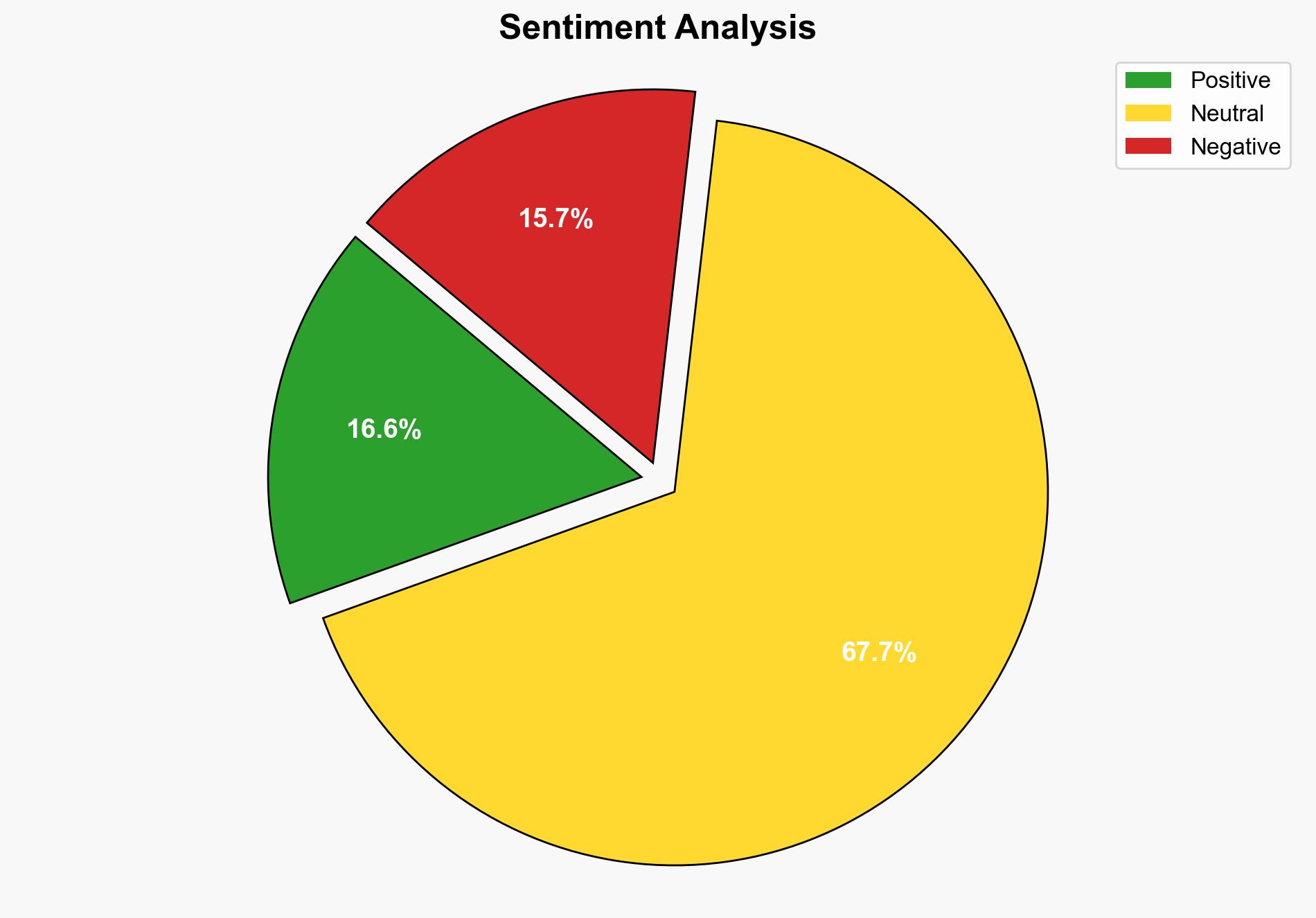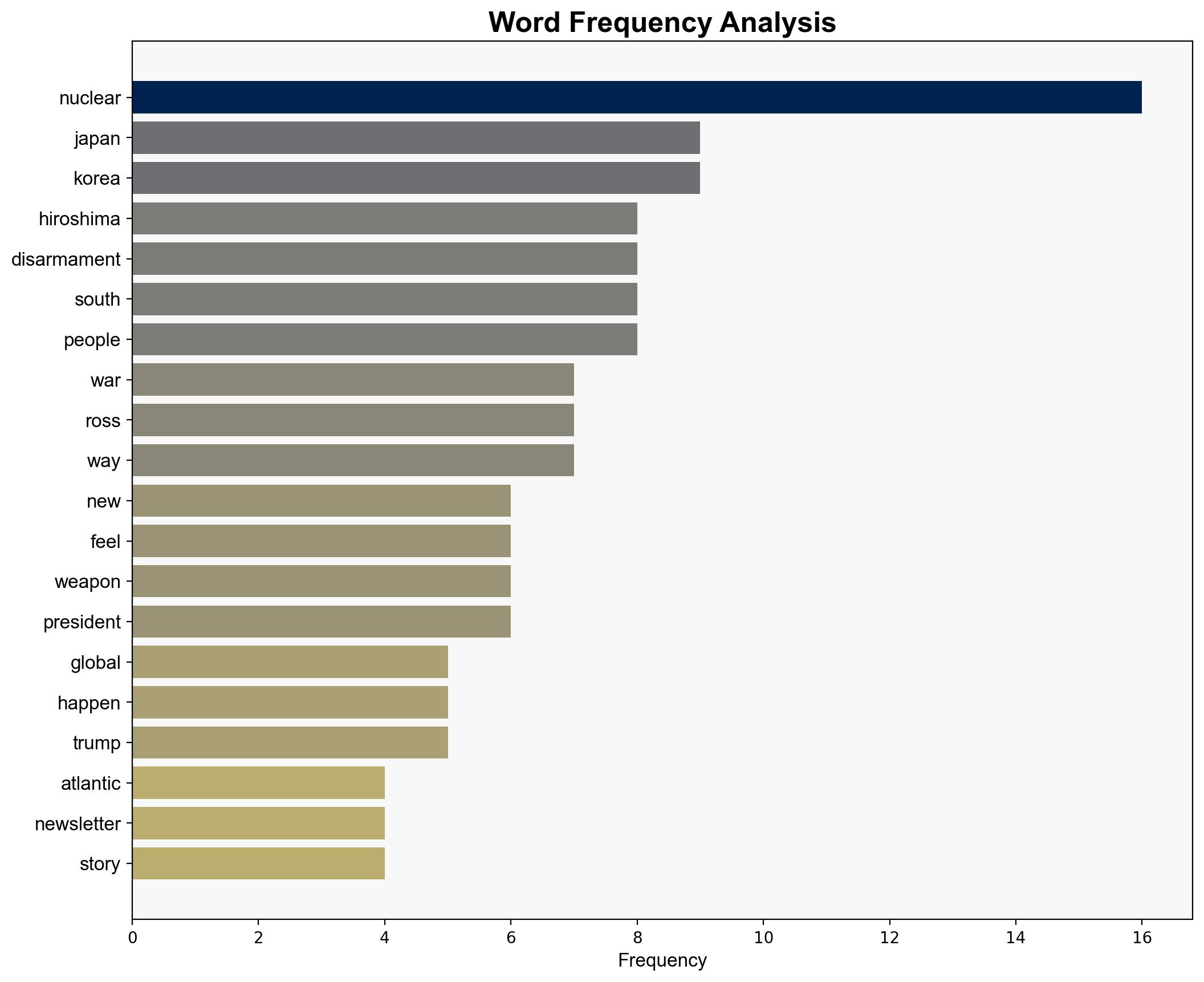The One Place Where Nuclear War Isnt Abstract – The Atlantic
Published on: 2025-07-10
Intelligence Report: The One Place Where Nuclear War Isn’t Abstract – The Atlantic
1. BLUF (Bottom Line Up Front)
The report highlights the tangible impact of nuclear warfare in Japan, particularly in Hiroshima, and the evolving regional dynamics in East Asia. The historical memory of Hiroshima and Nagasaki has shaped Japan’s national identity and its stance on nuclear disarmament. However, regional tensions, particularly with North Korea and China’s nuclear build-up, are prompting a shift in Japan’s nuclear policy. The report recommends strategic engagement with regional allies to address nuclear proliferation risks and emphasizes the importance of diplomatic efforts to prevent escalation.
2. Detailed Analysis
The following structured analytic techniques have been applied to ensure methodological consistency:
Causal Layered Analysis (CLA)
At the surface level, the report examines the historical events of Hiroshima and Nagasaki. Systemic structures include Japan’s post-war pacifism and regional security dynamics. The worldview reflects Japan’s historical memory and its impact on national policy. Myths involve the perception of nuclear disarmament as an idealistic goal.
Cross-Impact Simulation
The potential nuclear armament of South Korea could trigger a regional arms race, affecting Japan’s security posture and prompting a reassessment of its defense policies.
Scenario Generation
Scenarios include a continued status quo with Japan maintaining its non-nuclear stance, a shift towards nuclear armament in response to regional threats, and increased diplomatic efforts to strengthen non-proliferation treaties.
Bayesian Scenario Modeling
Probabilistic forecasts suggest a moderate likelihood of Japan reconsidering its nuclear policy if regional tensions escalate, particularly with advancements in North Korean and Chinese nuclear capabilities.
Narrative Pattern Analysis
The narrative of Japan as a peace advocate is contrasted with emerging narratives advocating for a more robust defense posture in response to regional threats.
3. Implications and Strategic Risks
The potential shift in Japan’s nuclear policy could destabilize regional security and provoke an arms race. Cybersecurity threats may increase as regional tensions rise. Economic dependencies on regional trade partners could be strained by geopolitical conflicts.
4. Recommendations and Outlook
- Enhance diplomatic engagement with regional allies to address nuclear proliferation concerns.
- Strengthen cybersecurity measures to protect against potential cyber threats linked to geopolitical tensions.
- Scenario-based projections:
- Best case: Strengthened regional cooperation and renewed commitment to non-proliferation.
- Worst case: Regional arms race leading to heightened military tensions.
- Most likely: Incremental policy shifts in Japan’s defense posture with continued diplomatic efforts.
5. Key Individuals and Entities
Ross Andersen, Hidehiko Yuzaki, Isabel Fattal, Donald Trump, Kim Jong Un
6. Thematic Tags
national security threats, nuclear proliferation, regional stability, diplomatic engagement





